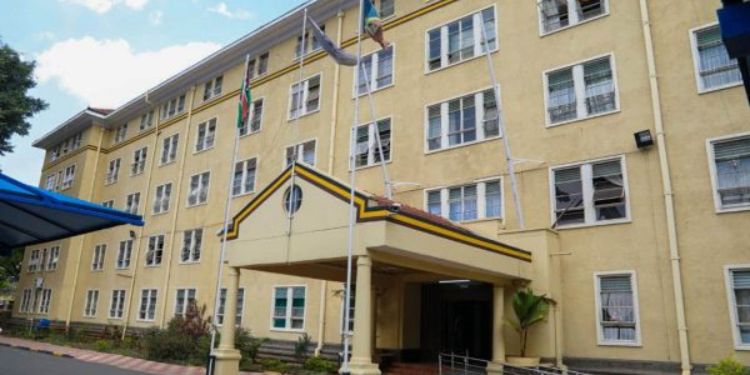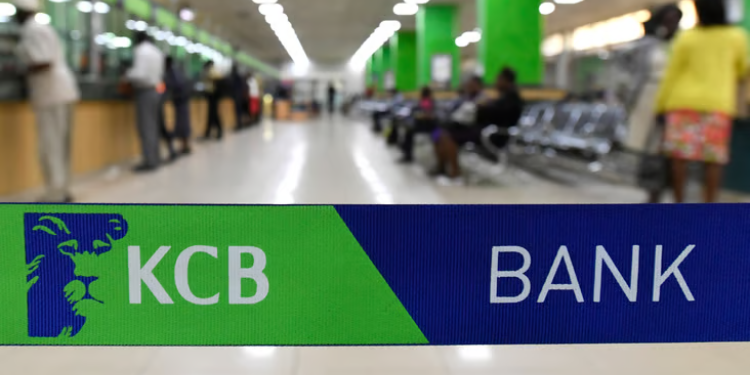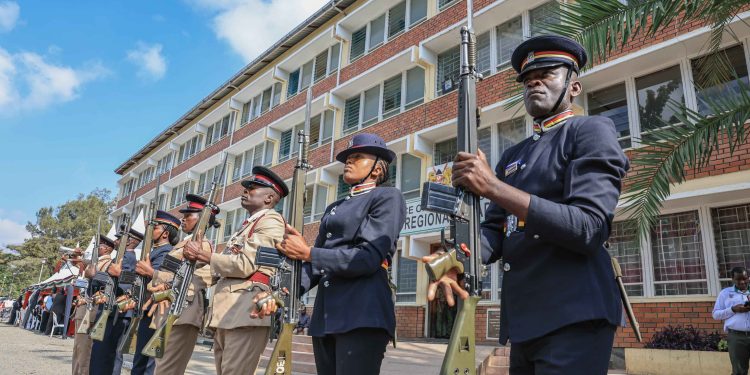The Kenya National Police Service (NPS), established under Article 243 of the 2010 Constitution, offers young Kenyans an opportunity to serve their country while building a rewarding career.
The National Police Service is under the independent command of the Inspector General.
Kenya Police Service (KPS) and the Administration Police Service (APS) are each headed by a Deputy Inspector General, whereas the Directorate of Criminal Investigation (DCI) is headed by a director.
The current Deputy Inspector General of the KPS is Mr Eliud Lagat, EBS, OGW, HSC, SS, ndc(K). Mr Gilbert Masengeli MBS, OGW, SS is the Deputy Inspector General for the Administration Police Service, and Mr Mohamed I. Amin, EBS, OGW, ndc(K) is the serving Director of the Directorate of Criminal Investigation.
Aspiring officers can join through structured recruitment programs, progress through ranks based on merit, and enjoy a range of salaries, allowances, and privileges designed to reward service, discipline, and dedication.
Police Ranks and Career Progression
The NPS follows a structured career progression system, with clearly defined ranks and responsibilities. Officers advance based on merit, experience, and successful completion of relevant training courses.
Commissioned Officers
| Rank | Role |
| Assistant Inspector General (AIG) | Highest rank in the NPS, serving as Deputy Inspector General. |
| Senior Assistant Inspector General (SAIG) | Senior leadership positions overseeing various directorates. |
| Assistant Commissioner of Police (ACP) | Mid-level management roles with significant responsibilities. |
| Chief Inspector | Overseas specialised units and operations. |
| Inspector | Entry-level commissioned officers leading specific units. |
Non-Commissioned Officers (NCOs)
| Rank | Role |
| Senior Sergeant | Experienced officers leading teams and ensuring discipline. |
| Sergeant | Supervises constables and ensures operational efficiency. |
| Corporal | Assists in leadership roles and manages smaller units. |
| Police Constable | Entry-level ranks are responsible for general policing duties. |
Salary Structure (2025)
The Salaries and Remuneration Commission (SRC) has revised the salary scales for police officers. Below is the updated salary structure:
Also Read: NPSC Announces Nationwide Recruitment of 10,000 Police Officers: Dates and Venues
| Rank | Monthly Salary (KES) |
| Police Constable | 25,645 |
| Corporal | 59,740 – 85,465 |
| Sergeant | 71,020 – 89,455 |
| Senior Sergeant | 81,640 – 101,405 |
| Inspector | 93,945 – 115,435 |
| Chief Inspector | 106,415 – 131,145 |
| Assistant Superintendent | 122,305 – 157,875 |
| Superintendent | 167,235 – 207,075 |
| Senior Superintendent | 182,515 – 219,035 |
| Commissioner of Police | 218,075 – 267,935 |
| Assistant Inspector General | 286,005 – 361,750 |
Allowances and Benefits
Police officers receive a range of allowances based on their roles, duties, and qualifications:
-
Hardship Allowance – For officers deployed in remote or challenging environments.
-
Risk Allowance – Applicable to officers in high-risk operational roles (e.g., bomb disposal, counterterrorism).
-
Special Duty Allowance – For officers assigned to duties outside their normal scope or in specialised units.
-
House Allowance – Provided to officers not living in government housing.
-
Commuter/Transport Allowance – Covers daily travel to and from duty stations.
-
Medical Allowance – Supplementary to the medical cover provided by the service.
-
Uniform Allowance – For maintenance and replacement of official police uniforms.
-
Training Allowance – For officers undergoing specialised or long-term training.
-
Overtime/Extra Duty Compensation – For officers working beyond standard hours, especially during emergencies or special operations.
Eligibility and Conditions for Allowances
National police allowances are role-specific and vary depending on rank, deployment, and specialised training.
Officers must meet certain performance and conduct standards to qualify.
Also Read: NPSC Gives Update on Recruitment Of 10,000 Police Officers
Additionally, the nature of the assignment (forensic, aviation, medical, legal) influences the allowance type and amount.
Privileges and Welfare
- Housing & Medical Benefits: Officers and their immediate families enjoy housing support and comprehensive medical coverage.
- Retirement Benefits: Pension schemes and other retirement entitlements.
- Leave Entitlements: Annual, sick, and special leave in accordance with service regulations.
- Family Support: Educational assistance and counselling programs are provided for officers’ families.
Objects and Functions of the National Body
Pursuant to Article 244 of the Constitution, the objects and functions of NPS include:
a) Strive for the highest standards of professionalism and discipline among its members.
b) Prevent corruption and promote and practice transparency and accountability.
c) Comply with constitutional standards of human rights and fundamental freedoms.
d) Train staff to the highest possible standards of competence and integrity and to respect human rights and fundamental freedoms and dignity; and
e) Foster and promote relationships with the broader society.
Follow our WhatsApp Channel and X Account for real-time news updates.

















































![Senator Allan Chesang And Chanelle Kittony Wed In A Colourful Ceremony [Photos] Trans Nzoia Senator Allan Chesang With Channelle Kittony/Oscar Sudi]( https://thekenyatimescdn-ese7d3e7ghdnbfa9.z01.azurefd.net/prodimages/uploads/2025/11/Trans-Nzoia-Senator-Allan-Chesang-with-Channelle-KittonyOscar-Sudi-360x180.png)























Police application
Recruitment posters for police officers